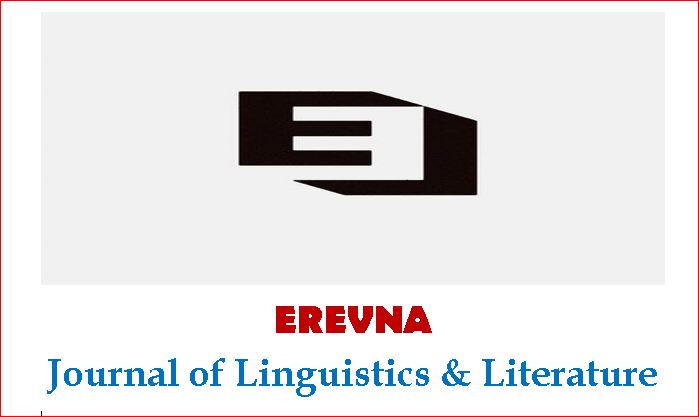Navigating Modernity and Coloniality: Text World Theory Analysis of 'Our Lady of Paris'
Keywords:
Text World Theory, Decolonial Studies, Modernity, Coloniality, Cultural Identity, Postcolonial Literature, Narrative Analysis, Socio-political Dynamics, Cognitive PoeticsAbstract
Literature from postcolonial societies often engages with the themes of modernity, coloniality, and cultural identity. Cognitive poetics, which emerged as a new critical lens, offers new insights into these themes. This research paper employs a cognitive framework, Text World Theory (TWT), to comprehensively analyse Daniyal Moeenuddin's short story Our Lady of Paris, focusing on its intricate narrative construction and thematic implications. While previous research has studied the text from postcolonial dimensions, Current research focuses on the intersection of modernity and coloniality; the study delves deeper into the text's portrayal of the ambivalent attitude of the colonial subjects. Through TWT, the analysis scrutinises the text's textual worlds and narrative advancements, unravelling the layers of meaning embedded within the story. Paul Werth (1990) and Joana Gavins (2007) developed this cognitive framework, which provides a framework for analysing the construction of fictional worlds, enabling a deeper understanding of how characters' mental representations and cognitive conceptualisation shape their actions and decisions. TWT allows the study to explore how characters navigate different text worlds. The narrative centres on the characters of Helen and Sohail, representing contrasting perspectives on modernity – one rooted in Western ideals and the other shaped by postcolonial struggles, and highlighting the complexity of identity in the postcolonial world. Through this cognitive lens, this study critically engages with themes of power, agency, and identity. The paper contributes to the discourse on decolonising literary studies and offers insights into how narratives negotiate the legacies of colonialism in contemporary contexts.
References
Altaf, M., Batool, H., & Khan, S. Y. (2024). Exploring colonial legacies: Resistance and decoloniality in Nadeem Aslam's The Blind Man's Garden. Panacea Journal of Linguistics & Literature, 3(1), 93-104.
Ali, S., Batool, H., & Maan, M. F. (2023). Faith and Identity in Stephen Crane’s “In Heaven” and Taufiq Rafat’s “This Blade of Grass”: Linguistic relativity leading to worlds within words. Journal of Contemporary Poetics, 7(1), 65-83.
Altaf, M., & Batool, H. (2024). Strategies of cognitive decoloniality in Nadeem Aslam’s The Golden Legend. Wah Academia Journal of Social Sciences, 3(2), 450–471. https://doi.org/10.5127/wahacademia322624
Batool, H., Noreen, R., & Nisar, M. (2024). Conceptualization of “Sadness” in Khadija Mastoor’s Aangan. Al-Aijaz Research Journal of Islamic Studies & Humanities, 8(4), 1-19.
Batool, H., Khalid, H., & Maan, M. F. (2022). The cultural appropriation of Urdu in Usman T. Malik’s collection Midnight Doorways: Fables from Pakistan. City University Research Journal of Literature and Linguistics, 5(2), 96–121.
Butt, S. R. A., Qasim, Z., & Javed, M. (2021). You are what you own: A transitivity analysis of in other rooms, other wonders. University of Chitral Journal of Linguistics & Literature, 5(2), 199-218.
Gavins, J. (2007). Text world theory: An introduction. Edinburgh University Press.
Gavins, J., & Steen, G. (2003). Cognitive poetics in practice. Routledge.
Gohar, G., Maan, M. F., & Batool, H. (2023). An exploration of metafunctions and binary oppositions in Pakistani paintings and poems. Pakistan Languages and Humanities Review, 7(2), 273-283.
Hai, A. (2014). Postcolonial servitude: Interiority and system in Daniyal Mueenuddin’s in other rooms, other wonders. The Johns Hopkins University Press.
Haq, A., Maan, M. F., & Batool, H. (2024). Unveiling the elements of a fairy tale: An exploration of Proppian narrative functions in A Thousand Splendid Suns. Journal of English Language, Literature and Education, 6(4), 24-43.
Javaid, S., Rabbani, M., & Habib, A. (2021). Hybridity leading towards identity crisis: A study of Daniyal Moeenuddin’s stories “Our Lady of Paris” (2009)” and “Lily” as Cultural Rai. Pakistan Social Sciences Review, 5(3), 18-27.
Mueenuddin, D. (2009). In other rooms, other wonders. Norton.
Malik, S. S., Batool, H., & Maan, M. F. (2022). The cultural appropriation of Urdu in Usman T. Malik’s Midnight Doorways: Fables from Pakistan. City University Research Journal of Literature and Linguistics, 5(2), 96-121.
Mueenuddin, D. (2012). Sameer and the samosas. The New Yorker
Younker, T. (2009, February 23). Daniyal Mueenuddin and Mohsin Hamid: Two 'internally displaced' writers. Asia Society. https://www.asiasociety.org/daniyal-mueenuddin-and-
Mueenuddin, D. (Alan Franks). (2009, July 11). Alan Franks interviews Daniyal Mueenuddin. The Times.
Nazir, B., Hussain, Z., & Hussain, Z. (2022). You sell me out: Representation of peripheral Pakistan in Daniyal Mueenuddin’s in other rooms, other wonders: Pakistan Linguistic and Historical Review, 6(2), 24. http://doi.org/10.47205/plhr.2022(6-II)24
Stockwell, P. (2002). Cognitive poetics: An introduction. Routledge.
Sadaf, S. (2014). Daniyal Mueenuddin's dying men. South Asian History and Culture, 5(4), 490-504. DOI: 10.1080/19472498.2014.936207
Stockwell, P. (2009). Texture: A cognitive aesthetics of reading. Edinburgh University Press.
Tariq, H. (2018). The feudal system of Pakistan in Daniyal Mueenuddin's short stories: A marxist critique. Linguistics and Literature Review. Retrieved from https://ssrn.com/abstract=3825397
Van Peer, W. (2001). Stylistics and Psychology: Investigations of foregrounding. John Benjamins Publishing.
Werth, P. (1999). Text worlds: Representing conceptual space in discourse. Longman.
Werth, P., & Gavins, J. (Eds.). (2005). Discourse and culture: Theoretical approaches. Narr
Waheed, K. (2017). Marxist reading of Daniyal Mueenuddin’s short stories in his book “in other rooms other wonders”. University of Lahore, Chenab Campus, Gujrat, Pakistan.
Citation of this paper
Altaf, M. & Batool, H, (2024). Navigating Modernity and Coloniality: Text World Theory Analysis of “Our Lady of Paris”. Erevna: Journal of Linguistics and Literature, 8(2), 37 -57.





